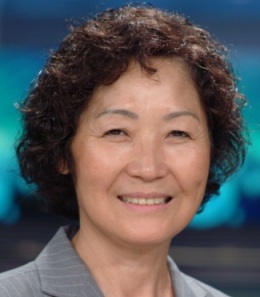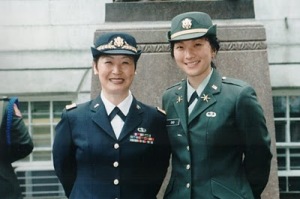"4 KEYS TO CONQUERING DISCOMFORT AND ACHIEVING EVEN GREATER
SUCCESS"
by Bill Bachrach
In coaching advisors for more than 17 years, I’ve observed a key distinction
between those who succeed at a high level and those who operate at a more
mediocre level.
Successful advisors are willing to
do uncomfortable things.
I’m talking about things that are uncomfortable for everyone. Successful
people manage to do them, while those who aren’t succeeding at a high level
will do just about anything to avoid the feeling of discomfort. I can
understand why advisors don’t like to make cold calls; they’re uncomfortable
for just about everyone (and we don’t recommend making them).
But I’ve noticed that many advisors are reluctant to do something even as
simple as asking for, obtaining, and following up on referrals.
Recently, I took a week off to go on a very long bike ride. While my friends
and I were logging over 100 miles a day and pushing ourselves up one hill after
another, it occurred to me that very few people deliberately do things that
make them uncomfortable.
In fact, most people are so self-conditioned to avoid discomfort that they
think people who seek discomfort are stupid, reckless, or gluttons for
punishment.
I often get just this kind of feedback when I tell people about my
“vacation.”
When confronted with something uncomfortable, most of us just won’t rise to
the challenge, even if it means failing to achieve our goals.
However, when we’re forced into an uncomfortable situation with absolutely
no choice in the matter, we human beings have an incredible ability to rise to
the occasion. People successfully move beyond being fired, going through
divorce, and dealing with life- threatening illnesses, or surviving the death
of a loved one.
Often they tell us, “It was the best thing to ever happen to me. I’m
stronger, better, and more equipped to live a more productive, successful, and
happy life.”
This is great news because it means we all have the capacity to handle
discomfort.
We simply have to choose to harness it to achieve our goals.
So why do we avoid deliberately putting ourselves in “controlled”
uncomfortable situations to make ourselves stronger, better, and achieve higher
levels of success and happiness? More important, how can we do this on purpose
so we can be stronger, better, more successful, and happier?
At the 1940 convention of the National Association of Life Underwriters, a
gentleman by the name of Albert Gray said, “The common denominator of
success—the secret of success of every man who has ever been successful—lies in
the fact that he formed the habit of doing things that failures don’t like to
do.” Gray’s words are often quoted within our industry, yet even more
significant are the lines he spoke next: “The things that failures don’t like
to do are the very things that you and I and other human beings, including
successful men, naturally don’t like to do. In other words, we’ve got to
realize right from the start that success is something which is achieved by the
minority of men, and is therefore unnatural and not to be achieved by following
our natural likes and dislikes nor by being guided by our natural preferences and
prejudices.” In other words, successful people push themselves beyond their
natural discomfort to do whatever is necessary.
When it comes to asking for referrals and following up, for example, I look
at it as a necessity—you can’t build your business without it. As far as I can
tell, there’s no comfortable method for filling your appointment calendar. But
if you don’t have any experience doing the things that are optional and
uncomfortable, you’ll probably tend to avoid them.
What discomfort are you avoiding that needs to be faced in order for you to
be the success you’re really capable of being? Are you asking yourself “what
if” questions that discourage you?
•What if I hire the staff I really need, but it doesn’t work out?
(Implication: I’ve wasted time, effort, and money.)
•What if I confront a staff person who isn’t getting the job done and they
quit? (Implication: I’m stuck doing paperwork for a while and I’m forced to go
out and find the right person for the job.)
•What if I ask for referrals and I offend a client? (Implication: The client
fires me and tells everyone in the community what a bad person and advisor I
am.)
•What if I follow up on a referral and they don’t appreciate my call? (Implication:
They call my client because they’re angry. Then the client gets mad that their
friend is mad so the client fires me and tells everyone in the community what a
bad person and advisor I am.)
]•What if I make that investment in my business and it doesn’t turn out like
I hoped? (Implication: I’ve wasted my time, effort, and money.)
•What if I give a client bad advice? (Implication: The client fires me and
tells everyone in the community what a bad person and advisor I am.)
If questions like these are standing between you and your success, stop
asking such lousy questions and try these four ideas instead!
1. Ask better questions.
Maybe you’re focusing on the wrong bad things. The consequences of not
asking for referrals and following up are much greater than the worst-case scenario
your imagination can conjure up.
Instead of focusing on all the bad things that might happen if you do what
needs to be done, ask yourself what will happen if you don’t do it. Here’s one
answer: You’ll end up being mediocre. Which is worse: being mediocre or dealing
with the discomfort required to be successful?
Mark Allen, the six-time Ironman Triathlon world champion, asks the question,
“Are you willing to do the work that the goal requires?” If you’re not
succeeding at the level you really want, you might want to spend some time
thinking about that question. If you want to be a successful financial
advisor—someone who has the right number of ideal clients to generate enough
gross business revenue to live the life you want—are you willing to do what it
takes?
2. Give yourself empowering answers.
As long as you’re talking to yourself anyway, why not focus on the positive?
What are some amazing, incredible, fantastic things that could happen? What
might happen when you consistently and effectively ask for referrals and follow
up? What might happen when you have the right staff doing the right things?
What might happen when you make that investment in your most valuable
asset—yourself?
3. Stop making excuses.
It’s amazing how often I hear advisors say, “That successful person was just
in the right place at the right time.” No, the truth is that nearly every
successful person has worked hard and taken uncomfortable actions consistently
and diligently over a long enough period of time to become successful today.
Stop making excuses and choose to face the uncomfortable situations that will
lead to your success. Instead of criticizing the people who have become
successful, choose to do the work and join them.
4. Make it a habit to choose discomfort.
The next time you find yourself avoiding something just because it’s
uncomfortable, do it anyway. This applies to both personal and business
decisions. Have you been putting off a preventive or diagnostic medical
procedure because you know it will be uncomfortable? Have you been avoiding a
personal issue or uncomfortable conversation? Schedule that doctor’s
appointment, mammogram, or colonoscopy. Visit that friend in the hospital. Talk
to that family member about how you really feel. Make an appointment to draw up
your will or trust. Join the gym and go workout, even if you don’t look perfect
in your shorts! Yes, these things may be uncomfortable, but do them anyway.
Practice choosing discomfort. It will eventually come more naturally to you and
the results will inspire you.
Here’s the bottom line. To become an even more successful financial advisor,
you’re going to have to do things that are uncomfortable. Remember the advice
offered by Albert Gray and Mark Allen. Don’t let discomfort be the deciding
factor in determining what you do or avoid doing. If you’re going to do
anything significant in life, you must push past the discomfort. In doing so,
you’ll also set a great example for people around you and earn their trust and
respect.
Don’t be a salesperson. Be a Trusted Advisor.



